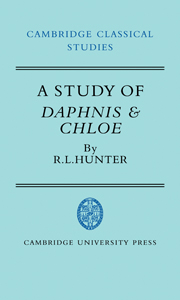Summary
D&C is replete with echoes of and allusions to archaic, classical and Hellenistic Greek literature. As with any work which draws heavily upon earlier literature, there are cases where it can be argued that the debt is unconscious, or that it serves no function beyond a purely ornamental one, and other cases where it may be disputed whether the debt is specifically to one ancestor or simply a general reflection of a widespread tradition. In the majority of cases, however, an echo of earlier literature invests a scene with a layer of meaning which would otherwise be difficult to fit into the artificially simple narrative; it allows the author to direct a reader's reaction without in fact having to intrude directly into the narrative. Thus, for example, when at 2.23.4 the Nymphs tell Daphnis in a dream that he is to receive martial assistance from Pan to whom Daphnis and Chloe have never shown the slightest honour, we think of Pan's reproof and promise to the Athenians which he delivered to the runner Philippides on the Arcadian plain at the time of the Persian invasion (Hdt. 6.105). This echo not only emphasises that justice is on Daphnis' side against the Methymnaeans, but also points to the amusing distance between the great events of Herodotus' history and the small world which Daphnis and Chloe inhabit. No ‘formula’ will fit every case, and in the first part of this chapter I wish simply to illustrate some of the ways in which Longus exploits the two authors from whom he has borrowed most, Homer and Theocritus.
- Type
- Chapter
- Information
- A Study of Daphnis and Chloe , pp. 59 - 83Publisher: Cambridge University PressPrint publication year: 1983

